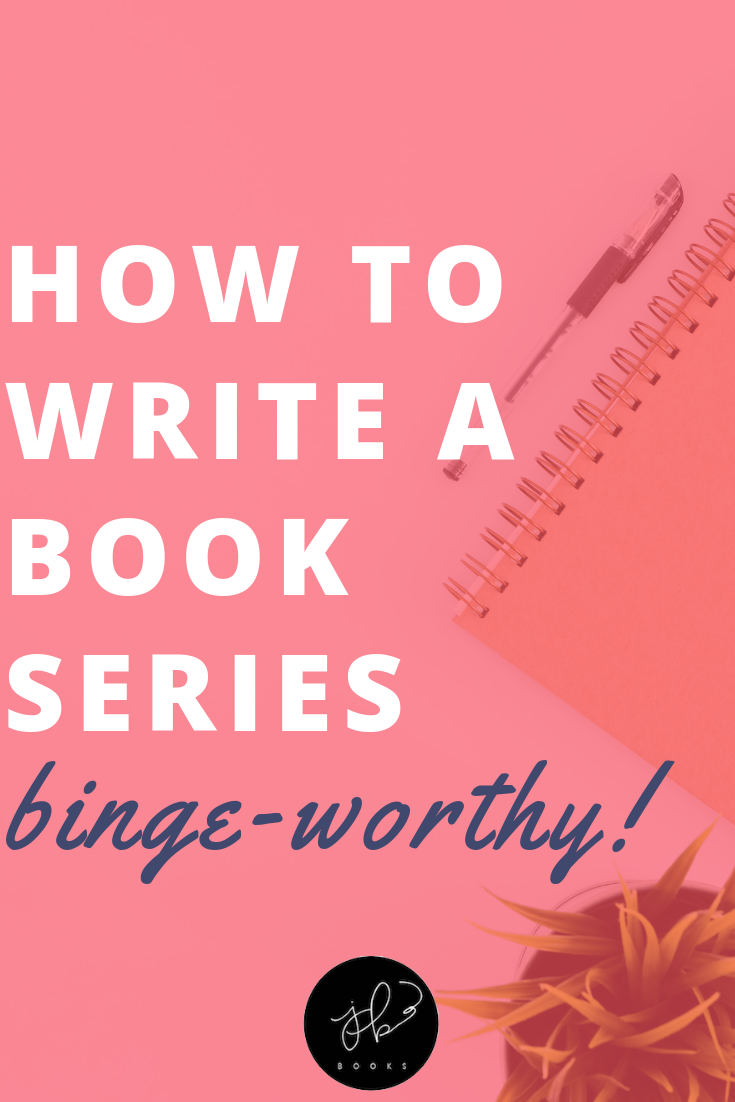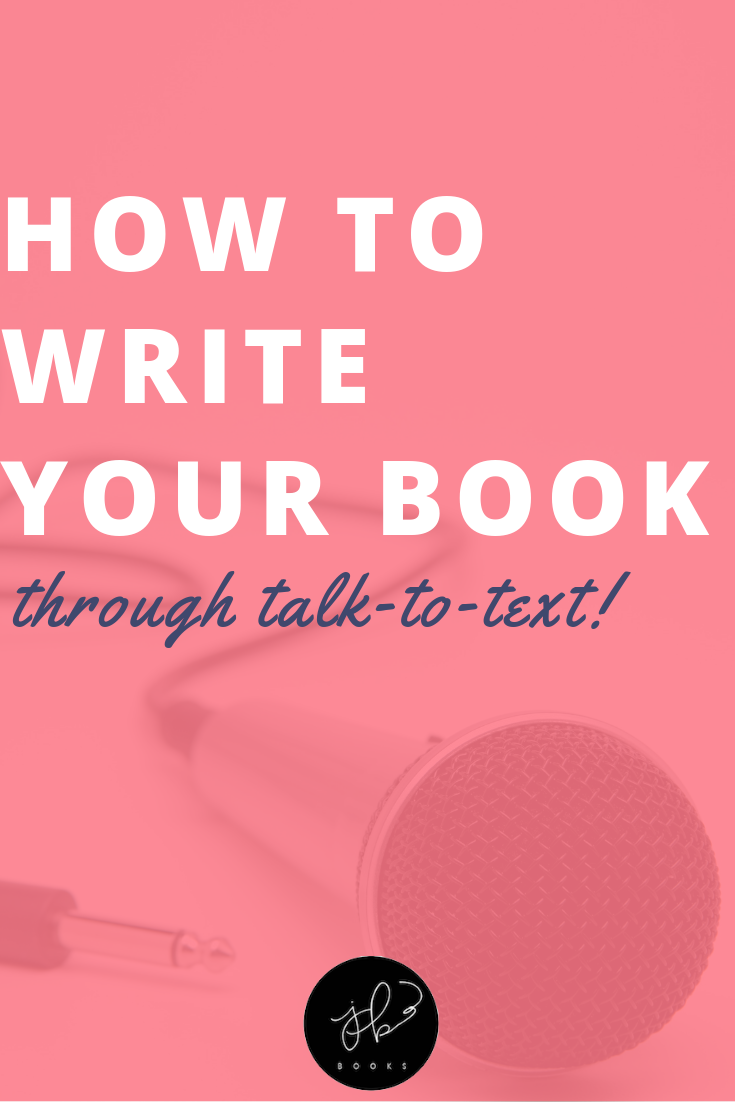It's stressful enough to plan one book, let alone a whole trilogy. As a pantser, the idea of sitting down and mapping out an entire world for several books makes me want to give up right then and there.
And yet, here I am, writing a trilogy. So, what's the deal? First of all, you should know that I didn't plan a single second of this. I wrote my novel, These Are the Moments, with the intent to wrap it up in a nice bow and be done with it.
But what I didn't expect was how much story was leftover for my secondary characters. Two powerhouse women characters with major flaws and big, unfinished stories - Reese and Vivian - were ready to step up to the stage. So, I'm letting them.
How can you write a binge-worthy book series? Here's what I've learned so far:
Know The Heck Out of Your Characters
The first thing that popped into my brain when I thought about writing a trilogy was my cast of characters. Here are a few questions to ask yourself before we dive a little deeper:
Have my characters completed their arc?
Where is there room to grow for these characters?
Will the story continue with my current main character or will it shift POV's?
How can I build on what I've already created for these characters?
How will the relationships shift and change?
For me, I decided that my series lent itself best to the idea of a new main character with every book, that way I won't get bored, and hopefully, the reader won't either. How can you make decisions about how to continue with your current characters?
Re-Read Your First Novel + Take Notes
I'm paranoid when it comes to the tiny details of my characters, because I'm more of a big picture person. Before I decided to write a sequel, I chose to write a novella and a short story in the same world. But first? I reread These Are the Moments and took notes on the following:
Timeline
When it came to figuring out my timelines, I needed to make sure that I kept track of specific dates such as:
Birthdays/Special Events
Time lapsed from previous novel
Past timelines such as when friends met, when relationships started, etc.
To keep track of these, I recommend keeping a specific word document or a folder in Scrivener, that way you can use it as a reference for later books.
Character Descriptions
Again, details are important! If I made a note about a secondary character's family member, I needed to keep track of it. For instance, my sequel's MC is Reese, and in the first book, I made a brief statement about her parents. I'd been writing the sequel as if she only had one parent, so I had to work around that.
Character Traits
Because I was switching MCs, I needed to make sure that I could really capture her voice. So, I had to keep track of any character trait I might have mentioned. Here are a few suggestions of what to observe:
Your character's dialogue: phrases he/she uses, sentence length, etc.
Your character's body language: facial expressions, how he/she holds him/herself, etc.
Your character's habits
Pay Attention to Your Readers' Favorites
A big lesson I've learned from writing and publishing my first book? Keep track of your readers' feedback! Thankfully, with reviews on Amazon and Goodreads, we're able to take a quick glance at our readers' opinions: the good, the bad, and the ugly.
However, you need to keep tabs on the social media comments as well. I make sure to take screenshots of important tweets, Instagram comments, as well as emails sent directly to me. Why? Because this is an amazing resource to enhance your series!
Again, one of the main reasons I chose to continue with this series is because of my readers' love for the character Reese. Don't forget to play close attention to this kind of feedback.
Outline or Don't, But Have a Plan
Let me be honest: I'm not a model for outlining. I make lazy outlines, and I don't write in any particular order. In fact, I write outlines after my first drafts, and even then, they're on napkins that I'm bound to throw away later.
Still, I know I need at least somewhat of a plan. (Side note: if these last few statements make me sound like less of an authority/a sloppy writer, it's a risk I'm willing to take. But FYI, I have references that can attest to the contrary.)
Make Sure You Have a Story
Think about your favorite movie series. How many times do movie series go on a few movies too long? (Hint: Totally felt this way about Mockingjay Part 1 & 2.) Only write more books if there's more story to tell.
How do we make this happen? Here are a few tips:
Write a quick book summary for each of your proposed books. (This can change later.)
Try to spread out your major book reveals. Keeps the suspense going!
Leave room to grow. Each book should have a mini-resolution, but leave room for more drama in the future.
Red Herrings, Cliffhangers, and Subverting Expectations
One of the greatest challenges to writing a series is to keep the momentum going. You want readers to be as excited for the last book as they were for the first, all the while bringing them deeper and deeper into the world you've created.
The super tough part is to keep the readers interested and asking, what's next? You need a balance of a-ha moments as well as WTF moments as well as hooray! moments. Sounds like a tough call? Let me help you out. (P.S. Take your time when writing. Just needed to be said.)
Red Herrings
When in doubt, throw 'em off. A red herring is basically a distraction. Make your audience believe one guy is the killer, when it's been the girl in the glasses all along. It can't be too much of a stretch that it takes your reader out of the realm of believability, but just enough of a shock to keep them interested. Example: And Then There Were None by Agatha Christie.
Cliffhangers
I've got a whopper of a cliffhanger planned for my second novel. I just needed to acknowledge it here for when people start throwing tomatoes at me later.
Cliffhangers are an excellent way to keep your readers on the hook, especially when done at the end or near the end of the book. However, use cliffhangers sparingly. If you dangle your readers on the line too much, they'll feel exploited and run away. Example: Catching Fire by Suzanne Collins.
Subvert Expectations
Think about tropes in the genre you're writing. What can you do to flip these on their head? My favorite example of this is Frozen. (Not a book, but still applies.)
Here are a few ways to explore this idea:
Character cliches/stereotypes: play on people's expectations of the type of characters you're writing.
Genre tropes: can you combine two genres? can you twist the ending in a way that's new?
Writing style: change it up a bit! maybe explore lyrical writing or writing in text message form.
Leave Room for Fandoms
Fandoms are all the rage. They're on Tumblr, they're blowing up your Twitter feeds, they're posting fan art on Pinterest. Fandoms love series, because it gives them a way to connect over multiple books, as opposed to a single book, which is harder to dive deep into the characters.
How do we encourage fandoms without being cheesy? Especially if you're a self-published author. I've got a few ideas for you:
Hashtags. That's right. Make a hashtag and use it. If you can include the hashtag in the book itself, that's even better.
Give them a home base. Can you make a virtual home for your fans? This could be in an email list, a Facebook group, a Twitter chat, etc.
Engage, engage, engage. Give your readers a chance to reach out to you personally and encourage them to do so. Make sure to answer them, too!
Run a contest. Can you host a contest for fan art or fanfiction? Think of prizes your readers may enjoy.
Be your own fan. How can you be a fan of your own work? How can you post about your book(s) without spamming?
Go the extra mile. Spend time brainstorming ways to build your base in a fun, creative way. Experiment. Engage. Explore.
And there you have it! Are you ready to write a binge-worthy book series? I sure am.
Discussion Time: What are some book series you've binged? What tactics kept you engaged from beginning to end?















